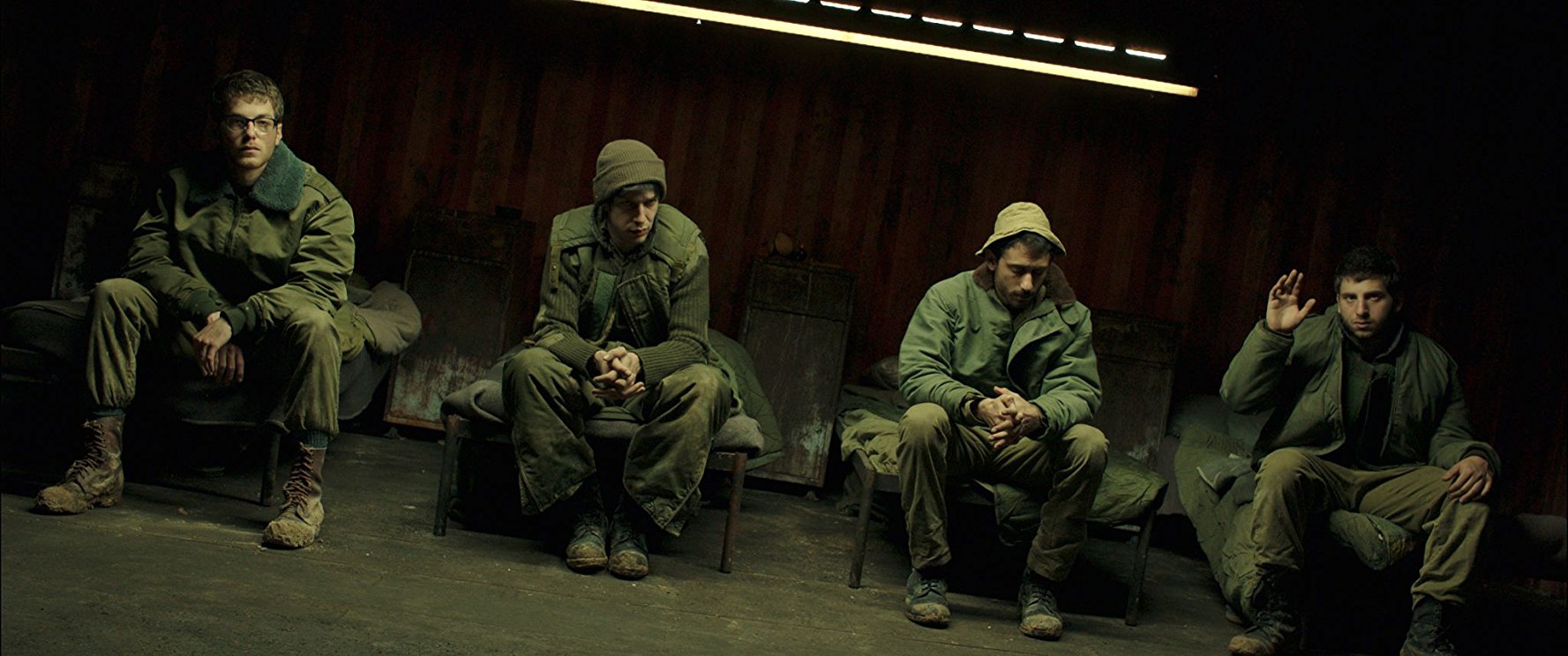
- Festivals
Foxtrot: Maoz’s Emotionally Devastating yet Engrossing Tale of Loss and Grief
Israeli director Samuel Maoz, who won the Golden Lion Award at the Venice Film Festival for his stunning war film, Lebanon, likes to take his time between movies. But it’s almost tempting to say that it was worth waiting as Foxtrot is just as inventive and bold as Lebanon, albeit in different ways, and thematically even more encompassing than the previous winning feature.
Screened in Toronto after world-premiering at the 2017 Venice Film Fest (in competition), Foxtrot should play in other fall-winter festivals. Admittedly, it’s a tough movie to watch, but an entrepreneurial distributor should release it theatrically (as Sony Classic did with Lebanon). On the surface, Foxtrot is yet another movie about loss – the unbearable grief of parents bereaving the death of their soldier-son while on duty. But Maoz is such a bright and ambitious writer-director that it’s the film’s broader socio-cultural contexts and rich subtexts in which the tale is placed that make Foxtrot so devastating and impactful.
The film is roughly divided into three parts, each marked by a distinctive style and tone. The first part is intense in capturing the fears of one family, standing in for any family whose sons (and recently daughters) are mobilized into the military. Soldiers arrive at the Feldmans house to inform them that their son has been killed in action. Reactions differ radically. The mother, Dafna (Sarah Adler), faints, forcing the soldiers to give her a tranquilizer. Meanwhile, the father Michael (Lior Ashkenazi) is so stunned that he can barely talk; as if to punish himself, he goes to the bathroom splashes hot water on his face. In no time, Michael’s older brother Avigdor arrives to take over the crisis, while a religious officer describes the formal procedures of the funeral.
Part two, which is shot in hyper-realistic style, focuses on the son, Jonathan (Yonatan Shiray), on guard duty with his mates at the northern border, where seemingly nothing happens – it’s just sit and wait. At night, to alleviate his boredom, Jonathan listens to the music of Renzo Cesana’s “Walk the Lonesome Night.” When a sudden attack occurs, which results in fatalities, we inevitably think of its futility and of the young age of the killed soldiers, who have barely experienced any life beyond high school. They are still teenagers on the verge of becoming men.
The third panel of the film depicts the efforts of the family members to deal with their grief. Maoz is perceptive enough to understand the changing moods of the mourning process, the momentary ups (tension release) and longer lasting downs, when deep depression sinks in. He shows how, at times, loss tears people apart, rather than unite them, as common sense would dictate. Adding subtext to what is already a relentlessly wrenching tale is the presence of Michael’s mother (Karin Ugowski) and Jonathan’s grandmother, who is one of the few survivors of Auschwitz. An inevitably historical link is suggested between the horrible past (which Michael, like many other younger Israelis, is unable to comprehend) and the present, in which the Israeli military is perceived by some as the real oppressor.
Though a “message” film about the futility of war and its senseless brutality, Foxtrot is not an agit-prop that bears its ideology or politics on its sleeves. And knowing Maoz, it’s intentional that the film’s coda is not entirely clear or obvious. The ambiguity is almost necessary, leaving room for various interpretations, depending on the viewers’ positions in the vast, divisive political spectrum that has marked each country in the turbulent Middle East, including the relatively new state of Israel.